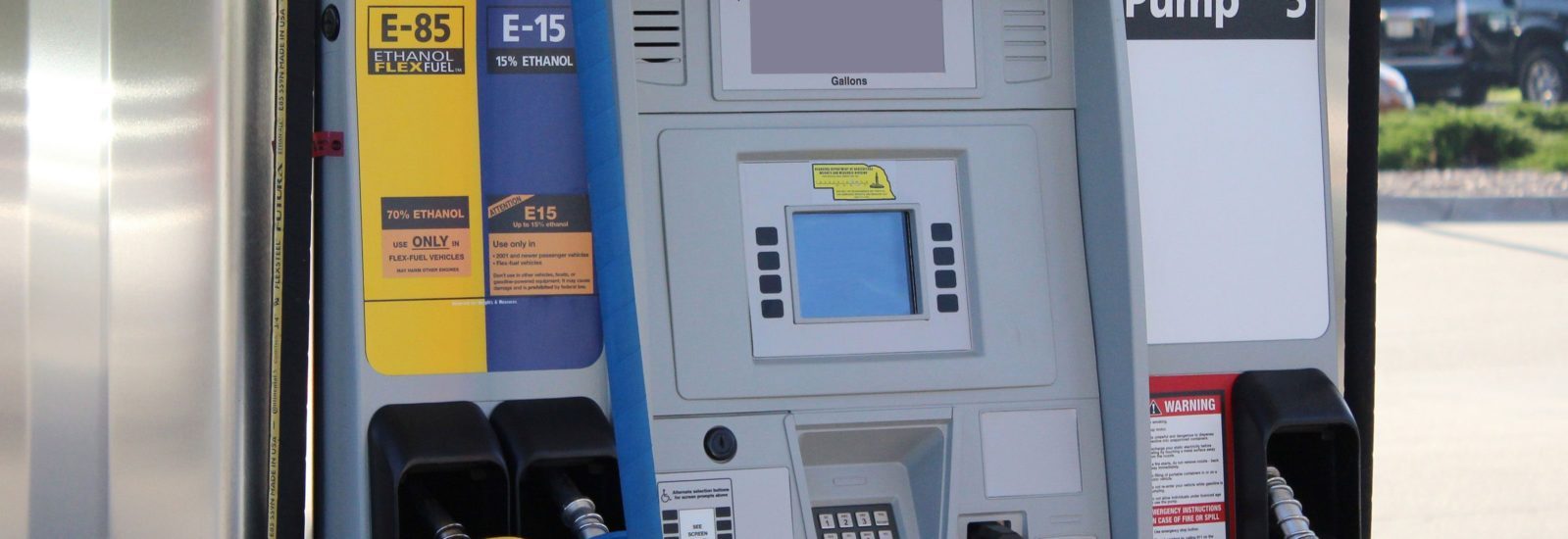As one of the “little steps” in the Little Steps Cleaner Air initiative, choosing ethanol at the pump is something nearly everyone can do to improve air quality.
Little Steps Cleaner Air is an outreach campaign run by the Omaha-Council Bluffs Metropolitan Area Planning Agency. It is funded by grants from the Federal Highway Administration and the Nebraska Environmental Trust and is supported by the Nebraska Ethanol Board. The campaign encourages residents in the greater Omaha metro to take small steps to improve the air quality in our area.
In addition to reducing tailpipe emissions, fueling your vehicle (or small engines like lawn mowers and snow blowers) with fuel blended with ethanol comes with many other benefits:
- Ethanol blends are often less expensive for drivers.
- Your engine won’t notice the difference.
- When you choose ethanol, you’re supporting Nebraska agriculture and the economy.
What is Ethanol?
Ethanol is a renewable fuel made from the starch in field corn. It’s the main ingredient in alcoholic beverages like beer and wine. And, because it can dissolve easily in water and other organic compounds, ethanol is an ingredient in many products for personal care, beauty, paints, varnishes and fuel.
Nearly 90 percent of the gasoline sold in Nebraska is E10, meaning it is made with 10% ethanol. Some gas stations across the state sell even higher blends, including E15 or Unleaded 88. This is made with 15% ethanol and is recommended for use in automobiles model year 2001 and after. Higher blends, like E20, E30, and E85, can be used in Flex Fuel vehicles.
The higher the blend of ethanol, the more it dilutes gasoline and reduces its toxicity. More and more fuel retailers are installing higher ethanol blends, but they are not available everywhere. To find a location near you, visit getbiofuel.com.
Ethanol burns cooler than pure gasoline, and cleans your engine. It received some flack early in its production, but numerous studies have proven it’s safe for engines. In fact, in May, the U.S. Environmental Protection Agency approved E15 to be used year-round. In the seven years that E15 has been available readily in Nebraska, how many times have engine failures or issues been reported related to this renewable fuel?
“Zero,” said Roger Berry, administrator of the Nebraska Ethanol Board. “More than 10 billion miles have been driven using E15 so far, and we’ve heard of no cases of it harming engines.”
What is the Environmental Impact of Ethanol?
Gasoline contains dozens of chemicals to help it burn and provide the octane needed to power your automobile’s engine. Some of these chemicals, like benzene, are known carcinogens and have been linked to cancer and respiratory issues. By using ethanol to dilute gasoline, which is a natural, non-toxic octane booster, we benefit from cleaner air and more efficient transportation fuels.
“The problem is, some of these gasoline chemicals don’t burn completely, and these harmful particles are spewing into our air. We breathe them in, and they can potentially embed in our blood stream and cause serious health issues,” Berry said.
Ethanol is carbon neutral, and in the U.S., it is responsible for removing the carbon equivalent of 20 million cars from the road. According to the Nebraska Ethanol Board, ethanol also:
- Reduces tailpipe carbon monoxide emissions by as much as 43%.
- Reduces exhaust Volatile Organic Compounds (VOC) emissions by 12%.
- Reduces particulate emissions, especially fine particulates that are especially hazardous to children, the elderly, and those with respiratory diseases.
Since ethanol is made from corn and other natural products, it is easily renewable year after year. Using ethanol helps our country reduce its dependence on foreign fuel sources and become energy independent. In 2018, ethanol displaced nearly 600 million barrels of crude oil, and petroleum import dependence fell to just 14% compared to 60% in 2005.
What is the Economic Impact of Ethanol?
Nebraska is the second largest producer of ethanol in the nation and the third largest producer of corn.
“In Nebraska alone, ethanol production is responsible for supporting 1,400 jobs. It has a $5 billion impact on our state,” Berry said.
Those 1,400 jobs don’t include the number of farmers who grow corn for making ethanol, or any number of subsequent jobs not related directly to ethanol production but still impacted by ethanol.
According to the Nebraska Corn Board, about 99% of the corn grown in Nebraska is field corn, which is grown primarily for livestock feed. Only about three percent of the world’s grain is used for ethanol in the U.S.
“As an agriculture state, ethanol is undeniably good for our economy, and for our air quality,” Berry said.
When you choose an ethanol blend at the pump, you’re supporting healthy lungs and a healthy economy.
